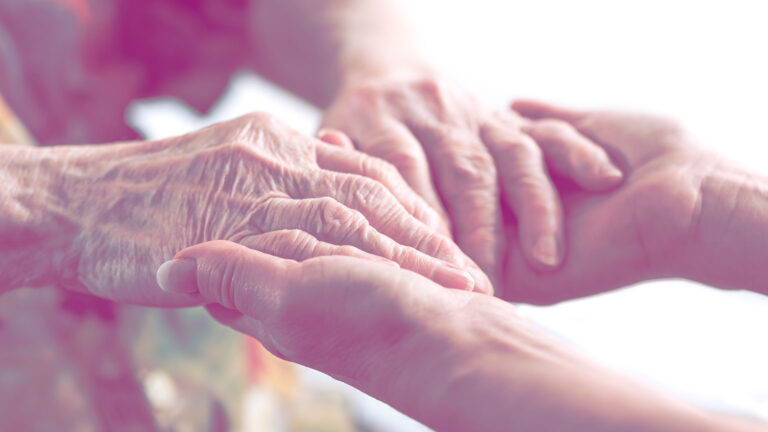Dying at home is a different experience to that of medical institutions. You are more in control of what is happening to your relative and for taking care of your own comforts too. You will also have the support of Macmillan Nurses if your relative is dying of a terminal illness. Due to the nature of their work, hospices and nursing home have better facilities for relatives of the dying. However, this is not the case in hospitals.
Hospitals are bustling, noisy places which deal in helping people to get well. There are few or no facilities for relatives who spend extended periods of time with a dying person. You may be lucky enough for your relative to be put into a side-room. Insist on this if you can. Otherwise, your relative will be put in the main part of the ward.
Here are a few suggestions to help you cope, whether your dying relative is in a hospice, nursing home or hospital.
- First of all, prepare to cancel your life. When someone is dying you will probably find it impossible to do or to think of anything else apart from being with them or preparing for their death. And, when you are not with them, you will be on red alert every time the telephone goes.
- You may feel as if you are walking around in a bubble, unable to relate to ‘normal’ life. Every-day conversations may seem biennial and irrelevant. You may find loud places like supermarkets or restaurants intolerable .
- Explain clearly to your children and other family members what you are going through. Additional stresses and strains can feel hard to bear. Tempers can easily fray.
- Get someone to stock-up the fridge and larder on ready-made meals and soups. You probably won’t feel like cooking when you come home. But do make sure you have something hot and nourishing to eat every day. You need your health and strength.
- Tell friends what is happening. People are amazing when they know they can be of support and help. It is comforting to have family friends sitting with the dying person. So, do offer friends to come and say their farewells. Some will gladly do this. Others may not, preferring to remember the dying person as they were.
- Make sure you have plenty of credits for your mobile, and remember to charge it regularly. You will find yourself making and taking lots of calls from family and friends. In a hospital, this usually has to be done in an echoing corridor with trolleys and people clattering and rattling by.
- If required, make sure you have plenty of change for the car park. Some machines only take coins. Be very careful when you drive as you will be pre-occupied with what’s going on.
At the bedside of someone reaching the end of life

- It can be alarming to see the person you love attached to a syringe-driver, monitors and a respirator. It can be hard too, to be with someone who is semi-conscious, in physical or emotional distress, and who may be moaning or crying out. You may very anxious and helpless. You may also feel overwhelmed, vulnerable and lonely, especially when nursing staff are busy with other patients.
- Make sure you take plenty of breaks, although it can be hard to find a private place when things get tough. But there are often quiet rooms in hospices, and hospital chapels are usually open around the clock.
- You may feel guilty when you go home knowing you might never see the person again. That’s normal. Just make sure when you leave you say your goodbyes. These farewells can mount up as the days go by.
- Most hospitals, nursing homes and hospices will not provide food for relatives. Sandwiches, especially from hospital vending-machines can be pretty dismal, and so to keep your strength up you will need more than just snack food. So do consider bringing in your own food. Hospital cafes cab be closed at weekends, and local cafes may be closed on Sundays.
- Staff are usually happy to give you coffee and tea as you sit by the beside. But it might be an idea to bring in a thermos so you can have a drink at any time. Drinking plenty of fluids is very important particularly as hospitals and hospices can be dry, hot environments.
- If you are in an open hospital ward, don’t hesitate to pull the curtain round to get some privacy. Let the nursing staff know that’s what you want to do.
- Bring in a comfortable pillow and blanket – especially if you are staying overnight. Hospital chairs have upright backs and are extremely uncomfortable after a couple of hours. If you relative is in a side-room, you may be able to bring in a bed role so you can sleep on the floor. But check with the nursing staff first.
- Don’t be afraid to knock on the hospital Chaplain’s door. They can also arrange for a priest, rabbi or ministers from other denominations to come and talk to you, or to say end of life prayers with you and your dying relative or friend. They will often come in the evening, if appropriate, to say prayers when you may not be there.
- Let the nursing staff get on with their job of providing nursing care. It is usually best to leave the room when they are washing and making the dying person comfortable. But don’t be afraid to ask staff to provide extra mouth-care or turning, or to inform them when your relative becomes distressed.
- Above all, don’t be hard on yourself. This is a very difficult and challenging time. Phone calls and visits quickly becomes part of your daily routine, and the dying process can seem grindingly endless. But remember that in comparison to the dying person’s life-span, their dying process is a short, precious time for you and for them.
Thank you for visiting this page. You may be interested in my books on death and dying. You can also listen to a host of fascinating guests on my Embracing Your Mortality podcast.
















